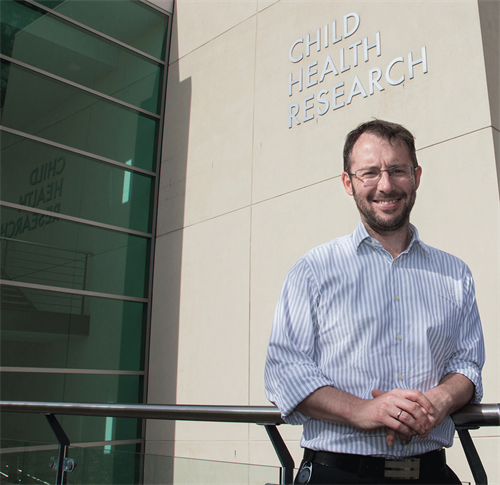Search
Research
Pertussis immunisation in infancy and atopic outcomes: A protocol for a population-based cohort study using linked administrative dataThe burden of IgE-mediated food allergy in Australian born children is reported to be among the highest globally. This illness shares risk factors and frequently coexists with asthma, one of the most common noncommunicable diseases of childhood.
Research
B Part of It School Leaver Study: A Repeat Cross-Sectional Study to Assess the Impact of Increasing Coverage With Meningococcal B (4CMenB) Vaccine on Carriage of Neisseria meningitidisRecombinant protein-based vaccines targeting serogroup B meningococci protect against invasive disease but impacts on carriage are uncertain. This study assessed carriage prevalence of disease-associated meningococci in 2018-2020 as the proportion of vaccinated adolescents increased following introduction of a school-based 4CMenB immunization program.
Research
A brief history of MECP2 duplication syndrome: 20-years of clinical understandingMECP2 duplication syndrome (MDS) is a rare, X-linked, neurodevelopmental disorder caused by a duplication of the methyl-CpG-binding protein 2 (MECP2) gene-a gene in which loss-of-function mutations lead to Rett syndrome (RTT). MDS has an estimated live birth prevalence in males of 1/150,000.
Research
Klebsiella aerogenes Adhesion Behaviour during Biofilm Formation on MonaziteThe adsorption behaviour of micro-organisms during the initial attachment stage of biofilm formation affects subsequent stages. The available area for attachment and the chemophysical properties of a surface affect microbial attachment performance.
Research
A Review of Cardiac Surgical Procedures and Their Outcomes for Paediatric Rheumatic Heart Disease in Western AustraliaSurgical intervention is an important treatment modality for advanced rheumatic heart disease (RHD). This study aimed to describe patient characteristics and outcomes from cardiac surgery for RHD in patients referred to the only tertiary paediatric hospital in Western Australia.
Research
PCV10 elicits Protein D IgG responses in Papua New Guinean children but has no impact on NTHi carriage in the first two years of lifeNasopharyngeal colonisation with nontypeable Haemophilus influenzae (NTHi) is associated with development of infections including pneumonia and otitis media. The 10-valent pneumococcal conjugate vaccine (PCV10) uses NTHi Protein D (PD) as a carrier. Papua New Guinean children have exceptionally early and dense NTHi carriage, and high rates of NTHi-associated disease.
Research
Safety and Immunogencity of a Prototype Adjuvanted Inactivated Split-Virus Influenza A (H5N1) Vaccine in Infants and ChildrenHighly pathogenic avian influenza A virus (H5N1) is a leading candidate for the next influenza pandemic, and infants and children may play an important role...
Research
The burden of rotavirus-related illness among young children on the Australian health care systemTo provide estimates of the annual number and cost of hospital admissions, emergency department (ED) visits and general practitioner (GP) visits...

News & Events
Whooping cough vaccine could be a new weapon in the fight against food allergiesResearchers from The Kids Research Institute Australia and Curtin University will use a $3.9 million grant from the National Health and Medical Research Council to investigate whether a type of whooping cough vaccine could provide bonus protection against food allergies and eczema.
Research
A phase 3, multicenter, randomized, double-blind, active comparator-controlled study to evaluate the safety and tolerability of V114 in healthy infants (PNEULINK)Jennifer Peter Kent Richmond RN MBBS MRCP(UK) FRACP Clinical Research Manager Head, Vaccine Trials Group Jennifer.Kent@thekids.org.au Clinical
